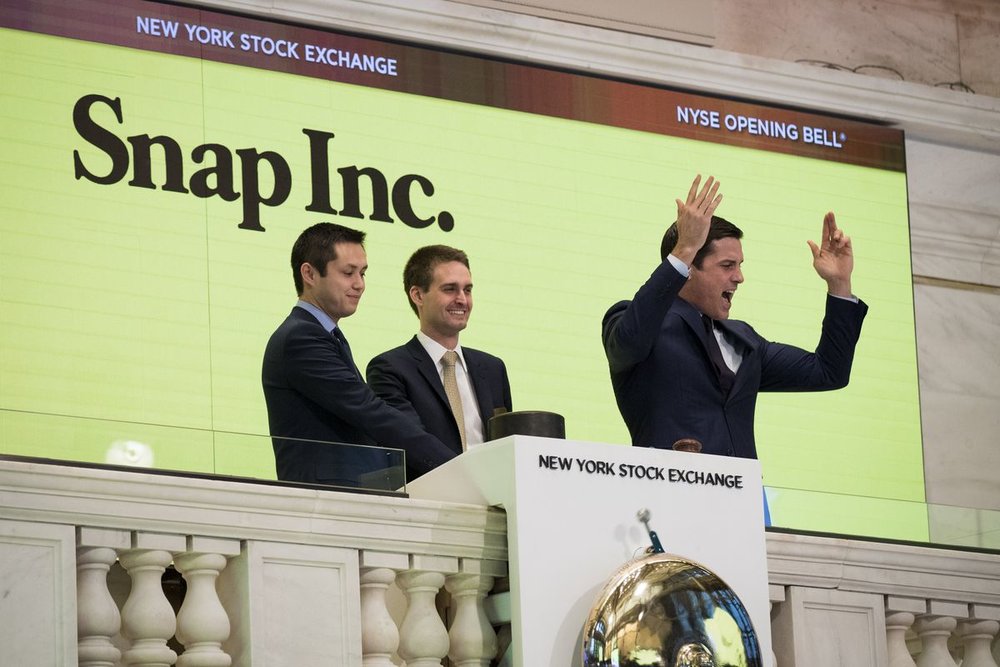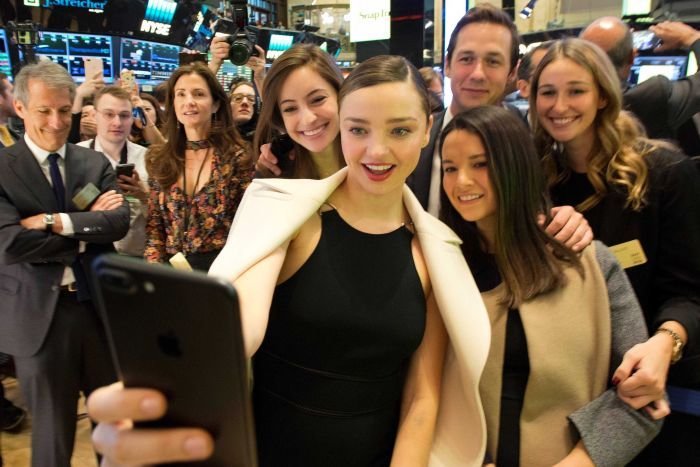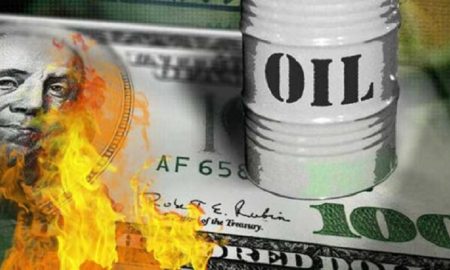
Kylie and Her Anti-Snapchat Tweet Shows that Stars Can Influence Stocks – for Better or for Worse

The rise of the social media and in celeb activities, increasingly play a major role in the stock market. Celebrity endorsements are now being used to manipulate stock markets and are most popular as effective marketing tools. A celebrity can attract new users or revive a product that has lost market share by creating new consumer interest. A genuine celebrity enhances brand equity and recognition, builds brand credibility quickly by positioning a brand, affect consumers’ attitude towards a brand and also enhances brand recognition. Abnormal stock market returns may result from a celebrity’s positive or negative effect.

Celebrity expertise, attractiveness, familiarity, perceived trustworthiness, and likability are traits in attracting consumers. Perceived attractiveness, familiarity due to exposure and likability are very influential traits for young people constituting Snapchat’s target user market. Young consumers are enticed to purchase a brand’s products if endorsed by an attractive celebrity of a similar age.
Do celebs walk the walk?
Celebrity effect can improve if the endorsing celebrity matches the endorsed product. Match-up endorsement has a positive effect on brand recall rate, shifting attention to the brand, and improves positive attitudes towards advertisements. Sport consumers have positive attitudes when athlete celebrities endorse sport brands rather than non-sport products. Research shows that match-up endorsements often generate abnormal stock returns. Consumers prefer someone with relevant product expertise to endorse quality, rather than a famous actor /sports star. Health professionals or doctors are much more appropriate to endorse health supplements or medical products. Technical experts should preferably endorse high-tech-oriented products.
Expensive celebrities worth the outlay

Investors invest in firms using celebs in the right profession, with excellent reputations as an expensive celebrity indicates a firm’s financial capability. Stock markets react positively to endorsing celebs and forces firms to employ Hollywood stars despite high endorsement fees. Cadillac paid actor Brad Pitt US$ 3 million for promo work. Chinese mobile company OPPO paid Titanic actor Leonardo DiCaprio an estimated $5 million for promoting its products. While for Kung Fu star Jackie Chan, the average endorsement fee is $2.5 million. Many firms tend to choose a certain celebrity based on fame and popularity ratings for multiple products and endorsements. This type of multiple endorsements is known in the industry as vamping, confusing to consumers and mostly is counterproductive, leading to severe loss of trust in the celebrity. There are other ways for the public to lose trust in a celebrity.
In high-tech, Celebs are a turn-off

For high-tech firms, stock markets are negative to celebrity endorsements for high-tech products. Investors feel that celeb endorsements are a mere market tool for brand promotion and to attract consumer attention. Celebrities are often motivated by endorsement fees or commissions without any understanding of product attributes/functions, except spouting as instructed. Investors are alert and cautious about celebrity endorsements. The firm’s listed book value plays an important role in abnormal stock return as it is indicative of the firm’s financial status. If the listed value is rather low, investors perceive it as a high-risk investment, despite the celebrity endorsement. A popular celebrity for firms with low financial value is considered detrimental to shareholder equity and could result in financial losses but for a firm with sound financial status, celebrity endorsements could generate positive abnormal stock returns.
More inTrade & Markets
-
How Blue Zone Living Can Help You Live a Happier & Healthier Life
Have you ever dreamt of living a life that is not just longer but richer in health and happiness? Well, get...
March 4, 2024 -
Why Financial Advisors Need to Be More Flexible & Adaptable
Today, the call for financial advisors to embrace flexibility and adaptability has been louder than ever before. Gone are the days...
February 29, 2024 -
Looking to Invest Like Warren Buffett? Try Public Storage (NYSE: PSA)
When it comes to investment strategies, few names are as revered as Warren Buffett’s. The Oracle of Omaha is known for...
February 20, 2024 -
Everything You Need to Know About Reverse Mortgages
Imagine if your home, your cozy refuge from the world, could also be your golden goose. No, it won’t start laying...
February 13, 2024 -
Living With Less and Loving More: A Modern Woman’s Guide to Minimalism
In a world overflowing with choices, where trends scream for attention and “more” seems to be the mantra, the allure of...
February 6, 2024 -
Long-term Investment Thrives Despite Unpredictable Stock Market Fluctuations
The journey of the stock market is akin to navigating through a constantly changing seascape. From the highs of early 2022...
January 31, 2024 -
Can Big Tech Reverse the Stock Market Downtrend?
Big tech stocks have influenced the financial markets over the past week. Nvidia spearheaded this influence with its impressive performance. Despite...
January 24, 2024 -
Buying Your Dream House? Embrace Climate Change as the New Reality
Home buying and selling is undergoing a dramatic transformation, thanks to climate change. This global issue is no longer an abstract...
January 16, 2024 -
How to Keep Your Bread Fresh & Tasty For Long? 6 Creative Ways
Let’s talk about something we all dread – moldy bread. It is not just about the unappetizing look. Mold on bread...
January 10, 2024














You must be logged in to post a comment Login